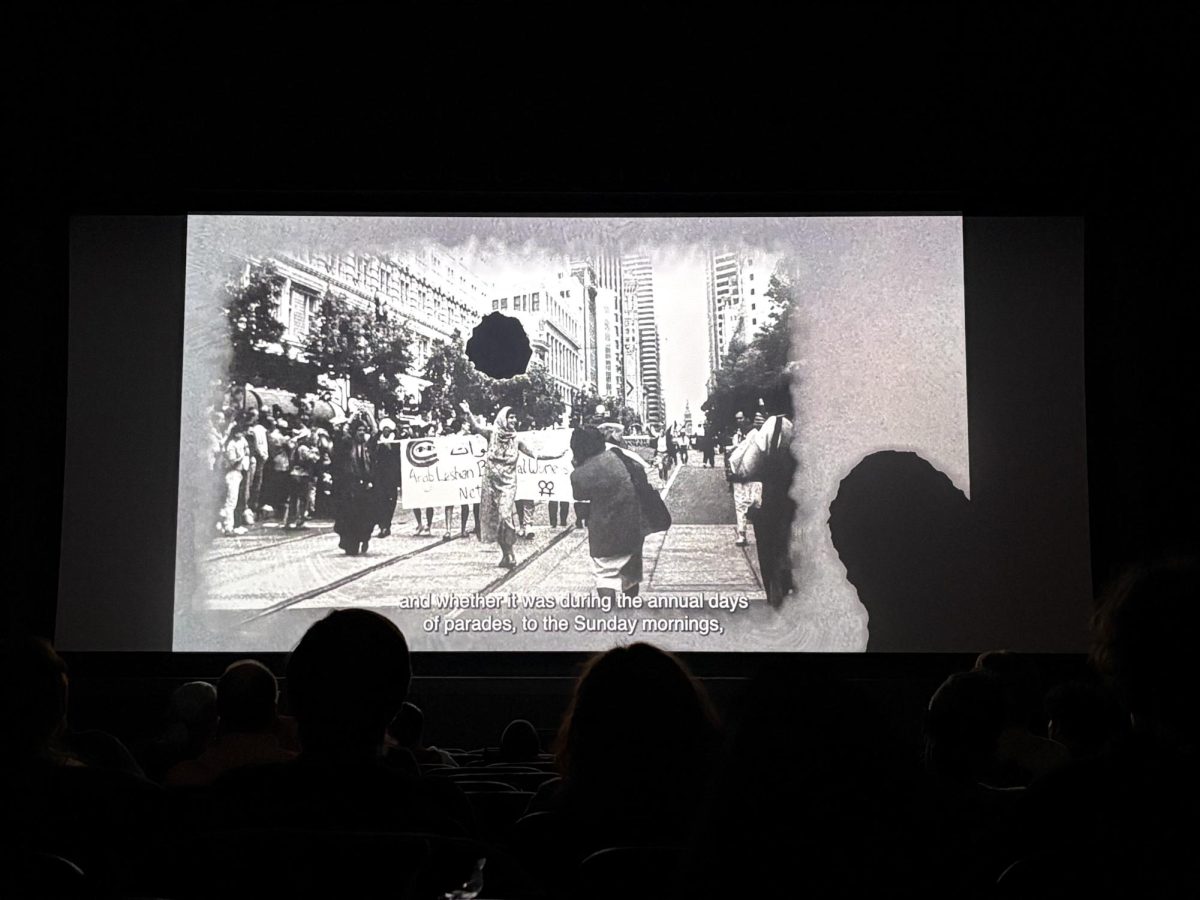Last Wednesday night, the Allen Memorial Art Museum hosted a screening of Red Reminds Me… at the Apollo Theatre for Visual AIDS’ Day With(out) Art 2024. The screening was done as a part of the AMAM’s exhibit, “The Body, The Host: HIV/AIDS and Christianity,” which already boasts a wide variety of multimedia installations and hosted a dance performance back in November. So, it is fitting that a film screening is being shown during part of its time at the AMAM.
Red Reminds Me… is a series of seven short films made by independent filmmakers across the globe about what it means to be HIV positive in 2024. This is important in a time when many people think the AIDS epidemic is in the past and others still see it as a disease which only gay men can be victim to. The films showed a diverse approach to this topic, ranging from a serious introspection on becoming sexually liberated while being HIV positive to a ketamine-induced music video on the paranoia HIV can bring.
A major element of these short films is that HIV exists globally, despite much of the discourse around it being focused on how it affects Americans. The films in Red Reminds Me… come from Panama, the Philippines, Argentina, Columbia, Belgium, and the U.S. Even though HIV has different meanings and associations, each film is connected by the common thread of sharing powerful and inspirational stories of people struggling but learning to live with the realities of the virus.
The event was emceed by Oberlin students and an alum, who shared their own personal stories on why these films and HIV/AIDS-related art and education are important to them. Highlighting the importance of sharing global perspectives, College fourth-year Dominic Wong discussed his own experience of coming to the U.S. from China and learning that HIV/AIDS is associated with gay men. This came as a surprise, as he had been raised to believe that it was related to poverty.
What was most striking about the films was the difference in quality among them. The first three, “El VIH se enamoró de mi” (“HIV Fell in Love With Me”), “Dear Kwong Chi,” and “Realms Remix” looked impressively professional, but the ones following did not show the same high quality production and script. For some of the films, such as Milko Delgado’s “El Club del Sida,” this was clearly an intentional creative choice poking fun at AIDS by caricaturing it. At the same time, it established itself as a serious film by referencing Ingmar Bergman’s The Seventh Seal, dressing AIDS up as Bergman’s film’s personification of death.
Vasilios Papapitsios’ “LUCID NIGHTMARE” used interesting VFX to communicate healing feels impossible in a world that treats you as inherently sick. However, the film was so over the top — and made many not-so-subtle references to the upcoming Donald Trump presidency — that the effect was lost. The lines about how stressful the state of the world is and how it feels like fascism is imminent feel tired in 2024, and Papapitsios’ attempts at making light of a dark situation by snorting mountains of ketamine and nasally singing “para-paranoia” fell flat.
A film that particularly nailed the message of what HIV/AIDS looks like in 2024 was Nixie’s “it’s giving.” Using a mix of home videos and archival footage, Nixie shared what it was like for a family, both biological and chosen, to go through the experience of navigating life with HIV together. Nixie paired footage from AIDS protests in the 1980s and ’90s with that of protests against the genocide of Palestinians to show how the legacy of HIV/AIDS activism is not only about the LGBTQ+ community or sexual health, but about standing up for those who cannot fight for themselves and showing solidarity in times of need.












